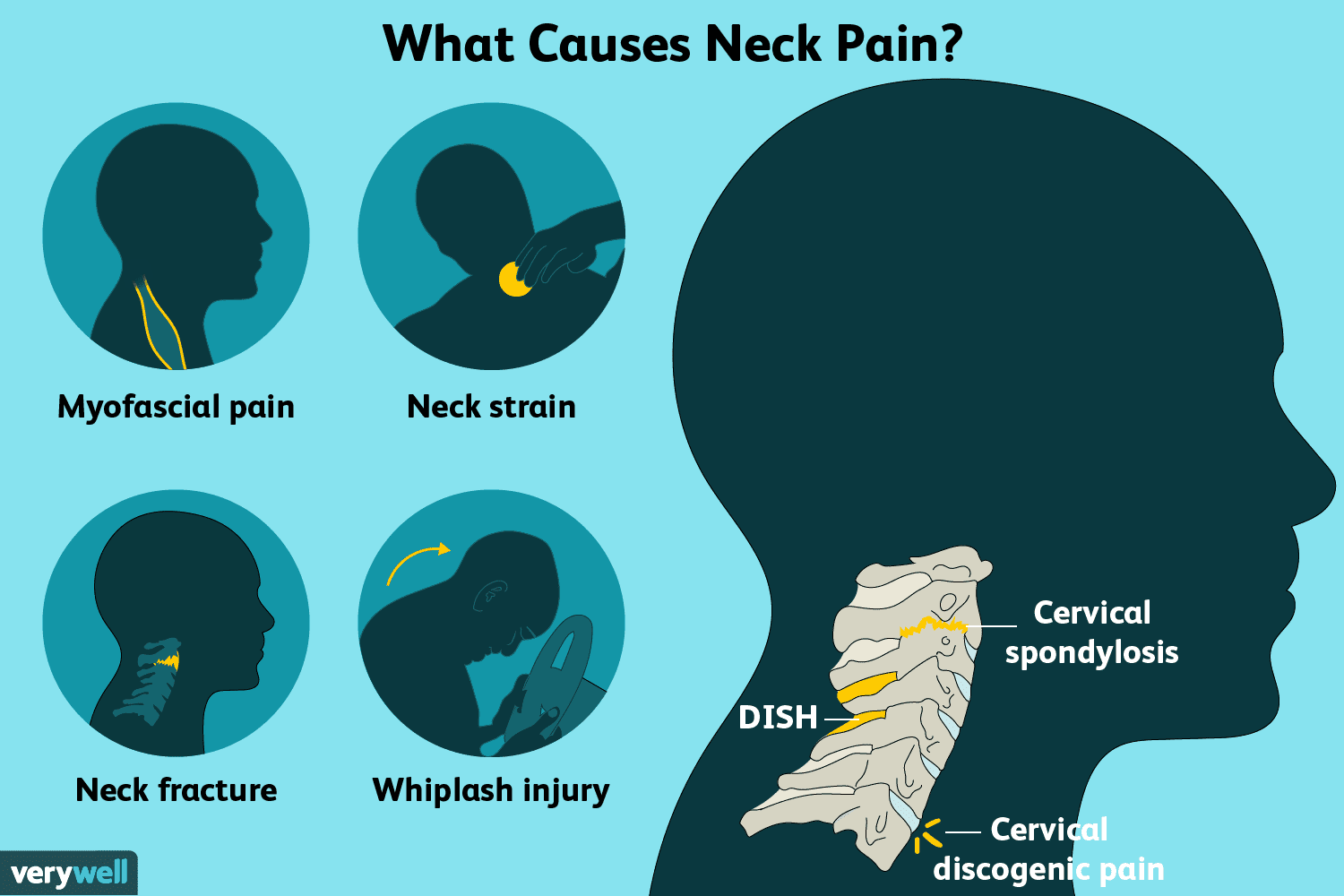The 10-Second Secret to a Stress-Free Neck
How to get rid of stiff neck in 10 seconds? A stiff neck is an all-too-common ailment that can strike at any time. Whether it’s from sleeping in an awkward position, poor posture, stress, or a sudden movement, a stiff neck can be both painful and frustrating. While it may not always be possible to completely eliminate the stiffness in just 10 seconds, there are several quick and effective methods you can use to get instant relief. In this blog post, we will explore various techniques and exercises that can help you alleviate neck stiffness rapidly, so you can get back to your daily activities pain-free.
Causes of a Stiff Neck

How to get rid of stiff neck in 10 seconds? Before we dive into the quick fixes for a stiff neck, it’s essential to understand what causes this discomfort. A stiff neck typically occurs when the muscles in your neck become tense or strained. Some common reasons for a stiff neck include:
Poor Posture: Maintaining improper posture, especially while sitting or sleeping, can put undue stress on your neck muscles.
- Sleeping Position: Sleeping with your head at an awkward angle or using an unsupportive pillow can lead to a stiff neck upon waking.
- Overexertion: Overuse of neck muscles through activities like heavy lifting or excessive screen time can strain them.
- Stress: Emotional stress and tension can manifest physically, leading to neck stiffness.
- Sudden Movement: A sudden, jerky motion of the neck, like turning it too quickly or unexpectedly, can cause discomfort.
Now, let’s explore how you can quickly address and alleviate neck stiffness using various techniques and exercises.
1. Neck Stretches
One of the most effective ways to relieve neck stiffness is through simple stretches. These stretches can help release tension in your neck muscles, improve blood flow, and reduce discomfort. Here are some quick neck stretches you can try:
a. Neck Tilt Stretch
- Sit or stand up straight with your shoulders relaxed.
- Slowly tilt your head to one side, bringing your ear towards your shoulder.
- Hold for about 10 seconds on each side.
- Repeat the stretch 2-3 times on each side.
b. Neck Rotation Stretch
- Sit or stand up straight with your shoulders relaxed.
- Gently turn your head to one side, trying to bring your chin towards your shoulder.
- Hold for about 10 seconds on each side.
- Repeat the stretch 2-3 times on each side.
c. Neck Extension Stretch
- Sit or stand up straight with your shoulders relaxed.
- Slowly tilt your head backward, looking up at the ceiling.
- Hold for about 10 seconds.
- Repeat the stretch 2-3 times.
2. Self-Massage
A quick self-massage can do wonders in releasing tension in your neck muscles. Here’s a simple technique you can use:
- Sit or stand up straight and use your fingertips to gently massage the affected area of your neck.
- Apply gentle pressure and make small circular motions.
- Continue massaging for 1-2 minutes.
3. Heat Therapy
Applying heat to the stiff area of your neck can help relax the muscles and increase blood flow. You can use a hot water bottle, a warm towel, or a heating pad for this purpose. Here’s how:
- Wrap the heat source in a towel to avoid direct skin contact.
- Apply it to the stiff area for 15-20 minutes.
- Make sure it’s not too hot to prevent burns.
4. Cold Therapy
If your stiff neck is due to inflammation, cold therapy can help reduce swelling and numb the area, providing relief. Here’s how you can use cold therapy:
- Place an ice pack or a bag of frozen peas in a thin towel.
- Apply it to the affected area for 15-20 minutes.
- Be sure to have a barrier between the ice pack and your skin to prevent frostbite.
5. Gentle Neck Exercises
Incorporating gentle neck exercises into your daily routine can help prevent and alleviate stiffness. These exercises promote flexibility and strength in the neck muscles. Here are a few simple exercises to try:
a. Neck Tilt Exercise
- Sit or stand up straight.
- Slowly tilt your head to the left, bringing your left ear towards your left shoulder.
- Return to the neutral position and repeat on the right side.
- Perform 5-10 repetitions on each side.
b. Neck Rotation Exercise
- Sit or stand up straight.
- Slowly turn your head to the left, trying to bring your chin towards your left shoulder.
- Return to the neutral position and repeat on the right side.
- Perform 5-10 repetitions on each side.
c. Neck Flexion and Extension Exercise
- Sit or stand up straight.
- Slowly tilt your head forward (flexion), bringing your chin toward your chest.
- Then, gently tilt your head backward (extension), looking up.
- Perform 5-10 repetitions of flexion and extension.
6. Posture Correction
Improving your posture is crucial in preventing future episodes of neck stiffness. Here are some tips to help you maintain proper posture:
- Keep your head aligned with your spine, and avoid leaning forward.
- Sit with your back straight, shoulders relaxed, and feet flat on the floor.
- Use an ergonomic chair and make sure your computer monitor is at eye level to reduce strain.
7. Breathing Exercises
Stress and tension can contribute to neck stiffness. Deep breathing exercises can help you relax and relieve stress, which, in turn, can reduce tension in your neck muscles. Try the following technique:
- Sit or lie down in a comfortable position.
- Inhale deeply through your nose for a count of four.
- Hold your breath for a count of four.
- Exhale slowly through your mouth for a count of six.
- Repeat this deep breathing exercise for a few minutes.
8. Over-the-Counter Pain Relievers
If the pain is severe and other methods do not provide immediate relief, you may consider over-the-counter pain relievers such as ibuprofen or acetaminophen. However, it’s essential to use them according to the recommended dosage and consult with a healthcare professional if your pain persists.
9. Maintain Hydration
Dehydration can exacerbate muscle tension, including in the neck. Ensure you drink enough water throughout the day to keep your muscles and tissues properly hydrated.
10. Rest
Sometimes, the best remedy for a stiff neck is rest. Avoid straining or overworking your neck muscles when possible. Give your body time to recover.
Remember, while these methods can provide quick relief for a stiff neck, they may not be a permanent solution if the underlying issue is chronic. If you frequently experience neck stiffness, it’s advisable to consult a healthcare professional for a comprehensive assessment and personalized guidance.
Preventing Future Stiff Neck Incidents

How to get rid of stiff neck in 10 seconds? In addition to seeking instant relief, it’s essential to take steps to prevent future occurrences of a stiff neck. Here are some proactive measures to consider:
Ergonomics: Ensure that your workspace, including your chair, desk, and computer setup, is ergonomic and promotes good posture.
- Proper Pillow and Mattress: Invest in a supportive pillow and mattress that align with your body’s natural curves and sleeping style.
- Regular Exercise: Engage in regular neck and shoulder exercises to keep these muscles strong and flexible.
- Stress Management: Practice stress-reduction techniques, such as meditation, yoga, or mindfulness, to prevent tension from building up in your neck.
- Stay Hydrated: Maintain proper hydration to prevent muscle cramps and tension.
Regular Breaks: If you have a desk job, take regular breaks to stretch and move around to prevent stiffness.
Conclusion: How to Get Rid of a Stiff Neck?

How to get rid of stiff neck in 10 seconds? A stiff neck can be a real pain in the well, neck. But with the right techniques and exercises, you can get quick relief and even prevent future episodes. Remember, while these methods can help you alleviate discomfort, if you experience chronic or severe neck pain, it’s crucial to consult with a healthcare professional for a proper diagnosis and long-term solutions. In the meantime, try out these quick and effective methods to bid farewell to that stubborn stiff neck in just 10 seconds or less.
BEST CHIROPRACTOR NEAR ME IN ORLANDO, FLORIDA

CALL NOW +1-407-434-7246
If you have suffered any type of injury or have been experiencing pain that just won’t go away regardless of what you do, then all you have to do is call and speak with our friendly staff. Find Best Sciatica Chiropractor in Orlando, Florida. Our team can help you get the treatment you need and ensure that the pain you experience is alleviated – once and for all.
We are proud to serve the areas of Orlando, Altamonte Springs, Haines City, Plant City, Kissimmee, Winter Haven, and Ocala.
Contact us for Chiropractor near me in Orlando, Florida for an Appointment Today.
What triggers stiff neck?
Stiffness and pain in the neck usually result from overuse, injury, or sleeping in an unusual position. Stretching, using warm or cold packs, and over-the-counter medication can often relieve it. But, sometimes there is a more serious cause, such as meningitis. The neck contains muscles, tendons, ligaments, and bones.
When is a stiff neck serious?
You should see your GP if: the pain or stiffness doesn't improve after a few days or weeks. you can't control the pain using ordinary painkillers. you're worried your neck pain could have a more serious cause.
What drink is good for stiff neck?
Drink plenty of water. Stiff neck pain can be caused by many things, including dehydration. Drinking more water throughout the day provides hydration which helps keep your body healthy and reduces stiffness in your joints as it does in other areas such as the hands and feet.
What not to do with a stiff neck?
Try not to jerk your head quickly or twist your neck. This can cause inflammation. Try gentle stretches, moving the head back and forth, then up and down. Ask a friend or partner to massage the sore area.
How do you sleep with a super stiff neck?
Sleeping on your side or back can help you keep the stress off your neck and manage pain. You should avoid sleeping on your stomach if possible. Sleeping on your stomach puts your neck at an awkward angle that may make your pain worse.


